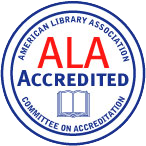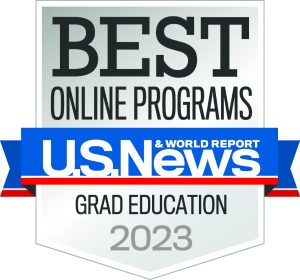Mission
The Library and Information Science (LIS) Program contributes to the essential knowledge, skills, and values of librarianship and the information professions through research, education, and engagement.
Vision
The University of Missouri LIS program will produce 1) research that transforms library and information science and 2) students who are fully prepared to be leaders in information professions.
Our online program offers the only Master’s Degree in the state of Missouri that is accredited by the American Library Association (ALA). ALA’s initial accreditation was granted in 1966/67, and the program earned continued accreditation in 2015.
Degree
You can also earn transcripted emphasis areas in:
- Electronic Learning Information Professional (ELIP) Apply
- Archival Studies Apply
- MLIS with School Library Media Certification Apply
- Youth Services Apply
Joint Degree
Students may also obtain both an MLIS degree from SISLT and a JD degree from the School of Law, or an MLIS and an MPA from the School of Public Affairs:
Student Testimonials
Alumni
We encourage our alumni to stay engaged with the School and Mizzou! Four easy ways to stay involved are (1) Host a practicum student at your workplace, (2) Support the LIS endowed scholarships, (3) Attend and speak at student group events, and (4) connect with us on social media.
Our graduates enjoy a variety of career paths. The list below is just a small sample of some of the positions that our recent graduates have taken:
- Reference/Web Services Librarian
- Archives Specialist
- Research Analyst
- Teen Librarian
- Children’s Librarian
- Instruction & Electronic Access Librarian
- Reference and Instruction Librarian
- Medical Reference Librarian
- Library Acquisition & E-Resource Specialist
- Electronic Resources Coordinator
Alumni Spotlight
- Alumni Spotlight: Amy Blevins
- Alumni Spotlight: Delia Wadlington
- Alumni Spotlight: Kelly Anders
- Alumni Spotlight: Denyse Sturges, MA-LIS (‘90), Ed.S. (‘02)
- Alumni Spotlight: Jeanne Drewes, MA-LIS (‘86)
- Alumni Spotlight: Angela Sample, MA-LIS (‘07), M.Ed. (‘09), Ph.D. (‘17)
- Alumni Spotlight: Eliot Boden, MA-LIS (‘13)
- Alumni Spotlight: Nancy Bolt, MA-LIS (’72)
- Alumni Spotlight: James Andrews, MA-LIS (‘97), Ph.D. (‘00)
Program Goals and Student Learning Outcomes (SLOs)
- Goal 1: To ground students in history, values, ethics, and guiding principles of the information professions.
- SLO 1: Graduates will apply the core principles, ethics, values, and body of knowledge to questions in library and information science, according to their area of specialty.
- Goal 2: To provide students with the evaluative and analytical skills to respond flexibly and adaptably to future changes and challenges within the organizations and institutions where they will be employed.
- SLO 2: Graduates will apply management principles and interdisciplinary best practices in library and information agency environments.
- Goal 3: To provide students with opportunities to develop cutting-edge technological skills and competences used across the information professions.
- SLO 3: Graduates will be competent in information organization and with understanding and evaluating information and communication technologies relevant to the information professions. This includes:
- Goal 4: To develop an appreciation of the service-based and user-focused nature of the information professions.
- SLO 4: Graduates will be able to assess community needs, formulate plans to respond to users of information agencies, and instruct users in using informational resources.
For more information about the SLOs, including examples of the outcomes and their mastery; along with overarching skills; maps to COA Standards, ALA Standards, and SAA Guidelines; and information about the revisions process: SLOs and Goals.docx
Program Outcomes
Time to Graduation
Students in the LIS program attend classes full-time and part-time, based on their lifestyles and needs. A full-time student could graduate in as little as two years, and part-time students have up to eight years to graduate. Our data show that most of our students take between two and three years to graduate. For full cohort enrollment, retention, and graduation data, please access this file.
| Cohort (First Term) | Year 1 Enrollment | Number Returning Year 2 | Year 1 to Year 2 Retention Rate | Total Graduates | Graduation Rate | Enrolled Current (AY2023-24) |
|---|---|---|---|---|---|---|
| AY 2010-11 | 124 | 113 | 91% | 109 | 88% | |
| AY 2011-12 | 73 | 61 | 84% | 62 | 85% | |
| AY 2012-13 | 77 | 69 | 90% | 63 | 82% | |
| AY 2013-14 | 52 | 46 | 88% | 42 | 81% | |
| AY 2014-15 | 57 | 49 | 86% | 44 | 77% | |
| AY 2015-16 | 48 | 42 | 88% | 41 | 85% | |
| AY 2016-17 | 74 | 71 | 96% | 69 | 93% | |
| AY 2017-18 | 101 | 86 | 85% | 80 | 79% | 1 |
| AY 2018-19 | 130 | 114 | 88% | 93 | 72% | 2 |
| AY 2019-20 | 187 | 158 | 84% | 129 | 69% | 15 |
| AY 2020-21 | 127 | 99 | 78% | 76 | 60% | 14 |
| AY 2021-22 | 86 | 71 | 83% | 21 | 24% | 41 |
| AY 2022-23 | 118 | 105 | 89% | 0 | 0% | 105 |
| AY 2023-24 | 102 | NA | NA | NA | NA | 102 |
| Total | 1,356 | 1,084 | 80% | 829 | 61% | 280 |
| Average Year 1 to Year 2 retention rate: | 88% |
|---|---|
| Average Year 2 to Year 3 retention rate: | 75% |
| Average Year 3 to Year 4 retention rate: | 53% |
| Average Year 4 to Year 5 retention rate: | 30% |
Notes
- First Academic Year Enrolled in Library Science is the first year that the student is enrolled for LIBRSCI_MA, LMS_MA, LIBMS_MLIS, or LIBIS_MLIS, for example AY2012–2013 is FS2012, SP2013, or SS2013
- Cohort is the number of students that enrolled for the semester for the first time in a Library Science program
- Grad in 1 year is of the cohort how many graduated in the Fall, Spring, or Summer.
- Continued to 2nd yr is how many of the 81 cohort of AY2012–2013 were still in enrolled in a Library Science program for FS2013, SP2014, or SS2014.
- Grad in 2 Years is how many of the 81 cohort of AY2012–2013 graduated in FS2013, or SP2014, or SS2014.
- Continued to 3rd yr is how many of the 81 cohort of AY2012–2013 was still in enrolled for FS2014, SP2015, or SS2015.
- Grad in 3 Years is how many of the 81 Cohort of FS2012 graduated in FS2014, SP2014, or SS2014
- Cumulative 3 Yr Graduation is (Grad in 1 Year + Grad in 2 Years + Grad in 3 Years)
- Academic Year follows Fall, Spring, Summer cycle. Ex: AY 2010-2011 includes Fall 2010, Spring 2011, Summer 2011.
- Completion terms includes terms until FS2021.
- Admit cohorts are based on the first term students enrolled in the program.
- Retention rates fall after year 3, as most students graduate in 2-3 years.
Placement
Placement data is collected annually by the Library Journal Placement and Salaries survey.
In 2022, the LIS program had 123 graduates. Of those, 14 returned surveys, and of those 14, 13 were employed full-time. MU LIS graduates reported an average salary of $65,573. https://www.libraryjournal.com/story/holding-steady-placements-and-salaries-survey-2023
In 2021, the LIS program had 91 graduates. Of those, 9 returned surveys, and of those 9, 7 were employed full-time. MU LIS graduates reported an average salary of $53,785. https://www.libraryjournal.com/story/Back-to-a-New-Normal-Placements-and-Salaries-Survey-2022
In 2020, the LIS program had 60 graduates. Of those 60, 5 returned surveys, and of those 5, 4 were employed full-time. MU LIS graduates reported an average salary of $53,500. https://www.libraryjournal.com/story/Careers-During-COVID-Placements-and-Salaries-Survey-2021
In 2019, the LIS program had 57 graduates. Of those, 7 returned surveys, and of those 7, 5 were employed full-time. MU LIS graduates reported an average salary of $51,667. https://www.libraryjournal.com/?detailStory=ljs-placements-and-salaries-survey-2020
In 2018, the LIS program had 49 graduates. Of those, 8 returned surveys, and of those 8, all were employed full-time. MU LIS graduates reported an average salary of $59,533. Full data set forthcoming. https://www.libraryjournal.com/?page=placements-salaries-2019-landing-page
In 2017, the LIS program had 43 graduates. Of those, 15 returned surveys, and of those 15, 13 were employed full-time. MU LIS graduates reported an average salary of $48,900. https://www.libraryjournal.com/?detailStory=ljx181002PlacementsIntro
In 2016, the LIS program had 61 graduates. Of those, 20 returned surveys, and of those 20, 12 were employed full-time. MU LIS graduates reported an average salary of $45,222, ranging from a low of $31,000 to a high of $75,000. http://lj.libraryjournal.com/2017/10/placements-and-salaries/2017-survey/explore-all-the-data-2017/

